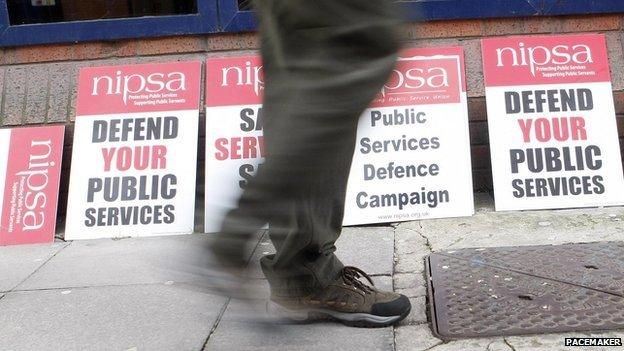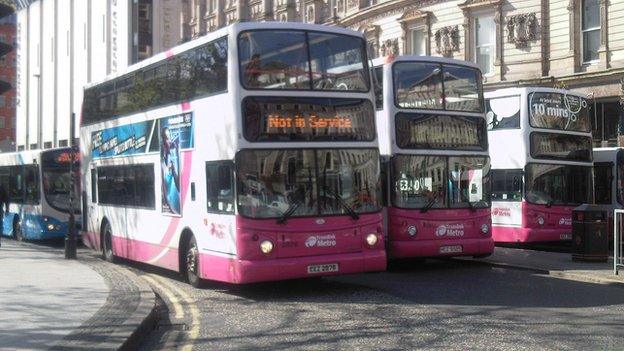NI strike: Ambulance crews agree to cover 999 life-threatening calls
- Published
BBC News NI Health Correspondent Marie-Louise Connolly looks at how the strike will affect health services
Ambulance crews have agreed to respond to 999 emergency calls for cases that are life-threatening during Friday's planned strike.
However, no agreement has been reached about covering calls that are not immediately life-threatening.
The Ambulance Service said these account for about 60% of 999 calls.
An estimated 60% of accident and emergency crews and 80% of rapid response paramedics plan to strike.
'Emergency cover'
Jimmy Kelly of the Unite union said "people who are frontline paramedics and in the ambulance service will be able to make the call on what emergency services are provided".
"Our concern is that in the past, when we've provided emergency cover it has been abused - it has turned into everything being made an emergency and made a farce of any agreement that we've made," he said.
"What we're saying is that we want to highlight the lack of services and the money that is being taken out of the service."
In a statement, the Northern Ireland Ambulance Service (NIAS) said it was expecting "a high level of participation in strike action which will impact significantly upon our ability to deliver our full range of services and will also jeopardise patient care and safety".
It said 999 calls assessed as immediately life-threatening including people experiencing chest pain, unconsciousness, choking and severe blood loss.
"While acknowledging their right to so do, NIAS regrets that the trade unions have pursued this line of action which withdraws emergency services for the majority of those who have need of it and puts lives at risk," it said.
Talks between Northern Ireland's health unions and management have been taking place in Belfast over emergency cover during the strike.
It is understood that most nurses are not taking part.
Paramedics have told the BBC that while members have not agreed to take part, they do not intend to cross the picket line and this would mean that there would be gaps in the system.
At a meeting on Wednesday, the trade unions and employers agreed that the statutory obligations to provide safe services and respect trade unions' right to take industrial action would be met.
In the past, members of St John Ambulance stepped in. It is understood that this time, volunteers are not keen to be seen crossing a picket line.
A number of services from various sectors in Northern Ireland are expected to be disrupted due to the planned strike.
- Published13 March 2015

- Published11 March 2015

- Published9 March 2015
